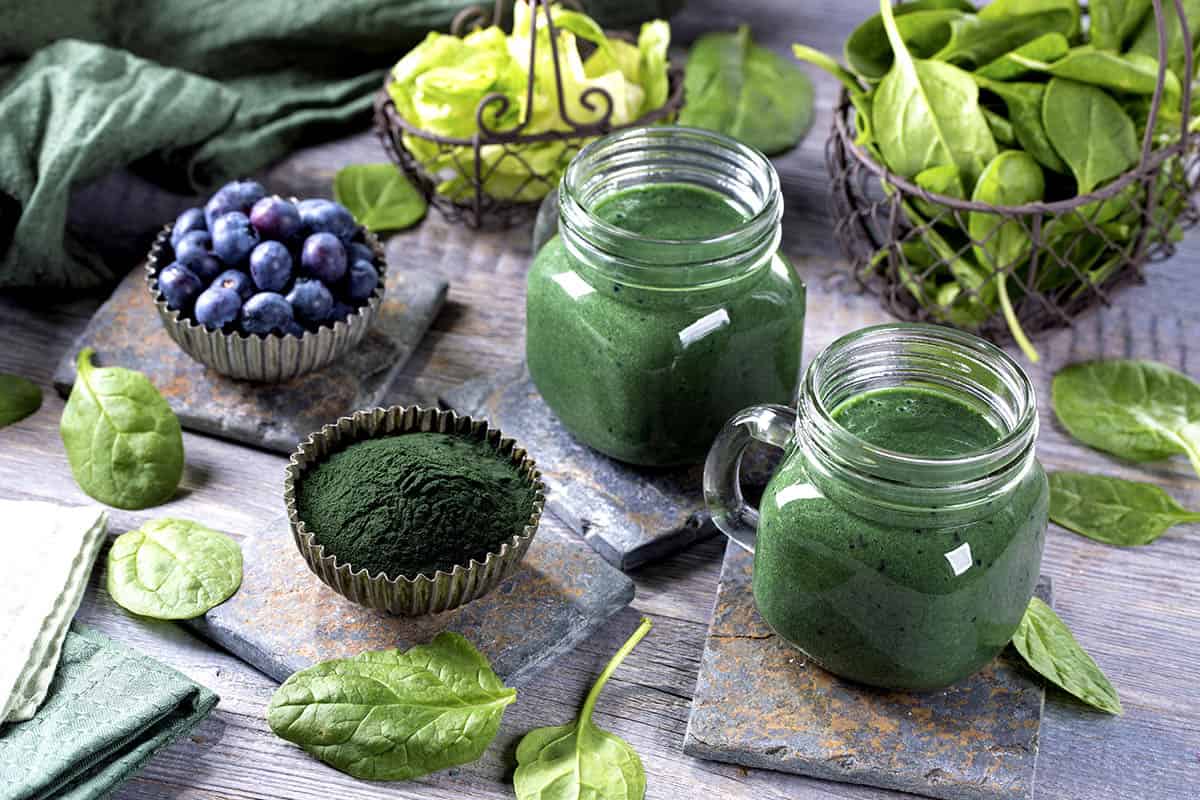Spirulina is a fantastic superfood that is becoming increasingly popular. A type of blue-green microalgae, it is absolutely packed with nutrients that promote health and well-being. Some people ingest it by adding a powdered form to smoothies, but if you find you don’t like the taste then it’s equally easy to get hold of spirulina in pill form. Here are ten of the most significant reasons why you need Spirulina in your life!
Table of Contents
1. It can boost immune system function
Spirulina is often praised for its high chlorophyll content. Some nutritionists theorize that chlorophyll improves resistance to disease and aids the body in removing potentially dangerous toxins from the circulatory system. In particular, spirulina is capable of binding with heavy metals, ensuring that they are excreted out of the body as waste. Meanwhile, spirulina’s antimicrobial properties mean that it can inhibit unwanted bacteria and yeast growth.
2. It could help to fight cancer
Phycocyanin is a pigment-protein complex exclusively found in blue-green algae, and it has boosted liver cancer survival rates in animal tests. In addition, scientists continue to investigate a potential link between algae like spirulina and the treatment of precancerous mouth lesions. Exciting preliminary studies show that a daily 1g dose of spirulina can reduce the risk of precancerous white patches in the mouths of tobacco chewers.
3. It can help vegetarians and vegans with iron deficiency
Spirulina can be a helpful ally to vegetarians who are concerned that they are no longer consuming enough iron. In fact, if you know that you have low iron levels for any reason, spirulina could be a smart addition to your diet. Meanwhile, vegans who are looking to make sure their calcium intake is adequate will be pleased to learn that spirulina contains over 26 times the amount of calcium found in milk.
4. It provides you with plenty of vitamin E
Although you probably know that vitamin E is good for you, it’s possible that you don’t realize just how important this nutrient can be. As it turns out, the vitamin E in spirulina could protect your skin from premature aging, reduce your chances of developing non-cancerous breast cysts, lessen your likelihood of suffering from Alzheimer’s disease and cut your bladder cancer risk by up to 50%.
5. It is a promising treatment for allergies
If you find yourself feeling miserable in hay fever season, spirulina might be able to help you. Early research suggests that a 2g daily dose of spirulina could reduce sneezing, eye irritation, and other allergy symptoms after just six months of regular treatment.
6. It is an excellent source of omega-3 fatty acids
The omega-3 fatty acids in spirulina come with an impressive array of different health benefits. For example, omega-3 fatty acids are linked to healthier blood pressure, reduced risk of developing type-2 diabetes, and a lower likelihood of developing breast cancer. The presence of these fatty acids may explain why spirulina studies suggest a reduced risk of type-2 diabetes and why menopausal women taking spirulina supplements report fewer symptoms like anxiety and hot flashes.
7. It might enhance the benefits of exercise
If you engage in regular workouts and are trying to cultivate a slimmer, healthier figure, it’s worth considering the exercise-enhancing effects of spirulina. For example, one large study involving a group of male participants taking a daily 6g dose found that these men could sprint for longer without running out of energy. Meanwhile, spirulina is at least 65% protein, and protein temporarily boosts your metabolism by causing your digestive system to work harder.
8. It has anti-inflammatory properties
Spirulina contains an essential fatty acid called GLA (gamma-linolenic acid), and this fatty acid can help to keep excessive inflammation levels under control. For example, clinical trials have shown that arthritis patients experienced some relief from their typical symptoms when ingesting more GLA, and breast cancer sufferers taking tamoxifen find that GLA boosts treatment effectiveness while reducing side-effects.
9. It could reduce cholesterol levels
If you care about boosting heart health, you’ll be pleased to learn that some early studies suggest that blue-green algae like spirulina can reduce chronically heightened levels of LDL (or ‘bad’) cholesterol.
10. It could help to maintain your eyesight
Thanks to spirulina’s vitamin A content, taking this supplement could help to protect your vision. Healthy eyes depend on vitamin A (in its retinol form) in order to differentiate light from dark and guard against the development of macular degeneration. Since macular degeneration can eventually lead to blindness, it is smart to do everything you can to ensure an adequate intake of vitamin A.
Although spirulina clearly promotes overall health, it’s worth noting that it may not be suitable for everyone. If you have phenylketonuria (PKU) or are taking anticoagulants to prevent clotting, ask your doctor if it’s safe to add spirulina to your diet.





Hello There. I found your blog using msn. This is a really well written article.
I’ll be sure to bookmark it and return to read more of your useful
info. Thanks for the post. I’ll definitely return.